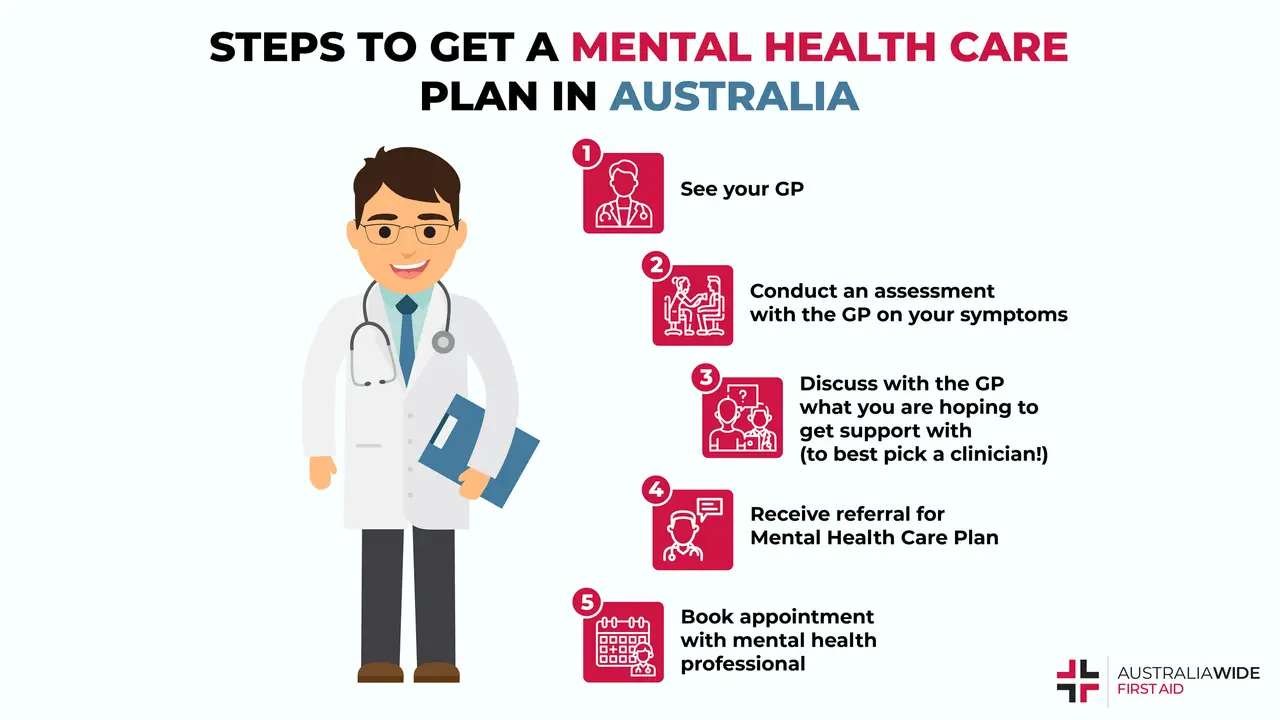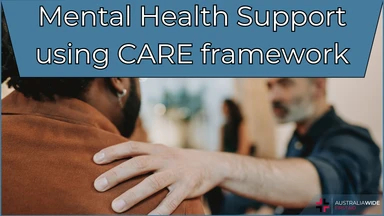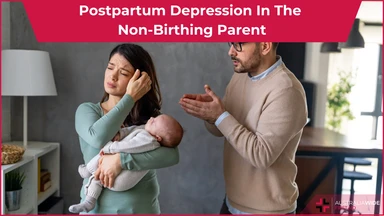How to access mental health care plans in Australia


Mental health care plans are important for people suffering from mental illness.
They provide a way to get treatment and support, and can help people recover from their illness. There are many ways to access mental health care plans in Australia, and this article will provide some information on how to do so.
A mental health care plan is a document that outlines the treatment and support a person with a mental illness will receive from Mental Health Services. The plan is developed by a GP, psychiatrist or another mental health professional, in consultation with the person with the mental illness, and takes into account their individual needs and circumstances. Mental health care plans can be used to access a range of services, including counselling, psychological therapies, medication and support groups.
The first step in getting a mental health care plan is to see your GP. Your GP will ask about your symptoms and how they are impacting on your life. They will also carry out some tests to rule out other causes of your symptoms. If your GP believes you have a mental illness, they will refer you to a mental health professional for an assessment. This assessment will be used to diagnose your illness and develop a treatment plan.
If you have a private health insurance policy, you may be able to access some Mental Health Services through your insurer. However, it is important to remember that not all Mental Health Services are covered by private health insurance.
There are also a number of free and low-cost Mental Health Services available in Australia. These services are often provided by non-profit organisations, community health centres or state-run Mental Health Services.
Mental health care plans can be used to treat a range of mental illnesses, including anxiety, depression, bipolar disorder and schizophrenia. If you are experiencing symptoms of a mental illness, it is important to see your GP so they can assess your condition and refer you to the appropriate Mental Health Service.
When you go to see your GP, they will ask about your symptoms and how they are impacting on your life. They will also carry out some tests to rule out other causes of your symptoms. If your GP believes you have a mental illness, they will refer you to a mental health professional for an assessment. This assessment will be used to diagnose your illness and develop a treatment plan.
Mental health care plans can be used to access a range of services, including counselling, psychological therapies, medication and support groups. The type of service you receive will be based on your individual needs and circumstances.
Some people with a mental illness may only need to see a counsellor or psychologist for a few sessions, while others may require long-term treatment. Medication may also be prescribed for some people with a mental illness, and this will be monitored by your GP or psychiatrist.
Mental health care plans are usually valid for 12 months, after which they can be reviewed and renewed if necessary. The amount of sessions or treatments you can receive under a mental health care plan is often capped, so it is important to use your sessions before they expire.
If your mental health care plan expires, you will need to see your GP to have it renewed. If you do not renew your mental health care plan, you may still be able to access some Mental Health Services, but you may have to pay for them yourself.
Mental health care plans are important for people suffering from mental illness. They provide a way to get treatment and support, and can help people recover from their illness. There are many ways to access mental health care plans in Australia, and this article has provided some information on how to do so. If you are experiencing symptoms of a mental illness, it is important to see your GP so they can assess your condition and refer you to the appropriate Mental Health Service.
Mental health care plans can be an important tool in managing mental illness, and there are many ways to access them in Australia. If you are concerned about your mental health, speak to your GP who can provide further information and support.
If you want to develop the confidence and know-how to assist someone in a health crisis, book a First Aid course with us today.
And to learn more about preventing, identifying, and managing the symptoms of mental health issues, check out the following articles in our Resource Library:
Education bridges the gap between misunderstanding and empathy in mental health. When we lack proper education, stigmas thrive, and those in need may suffer in silence.
Just as we prioritise physical health, mental health deserves equal attention. Learning to spot the warning signs of mental health challenges early can lead to timely intervention, often preventing crises that could have severe consequences.
A Mental Health Support Course empowers you to recognise and respond effectively to those who may be experiencing difficulties, offering them the care they need to recover.
Helping someone who may be struggling with their mental health is a delicate task. Our fully-online Mental Health Support course is available to give you the knowledge and tools you need to be able to assist someone who is experiencing poor mental health or is in a crisis. Completed from the comfort of your own home, earn your Certificate of Completion to give to your employer, put on your resume, or simply move forward with the knowledge that you can lend actual help to those who may need it.

February 18, 2025
Mental health can be influenced by every aspect of our lives, and the weather is no exception. In places closer to the equator with humid environments, like Darwin here in Australia, the onset of monsoon season can see people suffer from a tropical seasonal affective disorder known as ‘mango madness’.

January 16, 2025
Mental health crises can occur unexpectedly, and knowing how to respond effectively can make a significant difference. The CARE framework is an easy-to-remember guide for offering support during a mental health crisis. It is also applicable if you think you might be seeing signs and symptoms of low mental health in a loved one, friend, or colleague.

June 3, 2024
New parents, both birthing and non-birthing, can develop postpartum depression. Birthing parents are easily recognized as being at risk for postpartum depression; however, it is important to acknowledge that non-birthing parents are equally susceptible to experiencing postpartum depression.